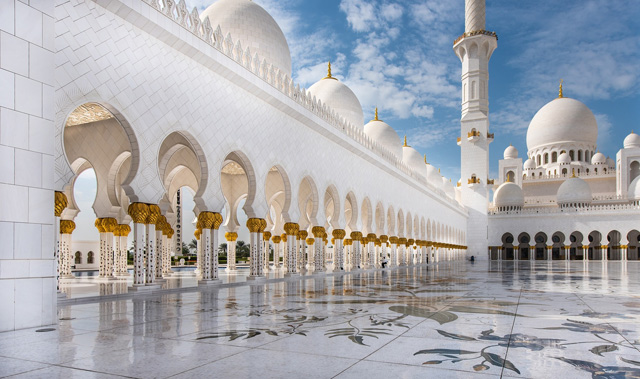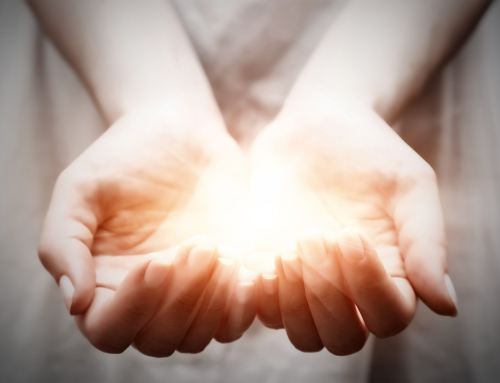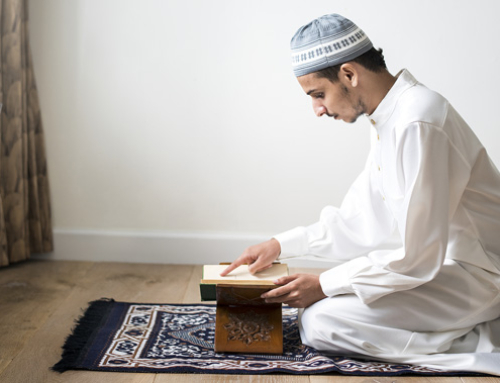Abdessalam Yassine
October 17, 2022
Excerpt from the book “Al-Ihsan”
Translated from Arabic by: Editorial Board
In this section, we want to spend time with the experts in tarbiya (education, purification, and growth), the doctors of hearts, and look into how they used their precious medicinal resources to cure themselves and their students. We want to clear a path to obtain decisive knowledge regarding a most weighty subject – the subject of traveling the path to God (Glorified and Exalted be He). Obtaining this knowledge requires us to navigate through conflicting opinions, impassioned arguments, and fierce polemical battles.
Fifteen years ago, I wrote on this subject and offered the best testimony that I could at the time, when I was still in the beginning stages of my companionship with a Shaykh who was a Knower of God, may God shower abundant mercy on him and reward him on our behalf. I adduced some quotations from Sufis to support my testimony, with all the innocence of someone who discovered a new world and began to shout at the top of his lungs to attract the attention of people, with no concern for who would believe, deny or doubt. Based on those quotations, some ascribed to me positions that I do not hold, some declared me an unbeliever because I mentioned so-and-so and so-and-so without declaring them to be unbelievers, and others considered me to be a naïve believer in superstitious delusions because of my discussion of the Unseen and miracles.
I am now returning to the subject, not to wash my hands of the Sufis as some have insisted, nor to bear the responsibility for what others have said, but rather to say the word of truth that leaves you without friends; rather, to move beyond a stage in which adducing quotes from great Men of God other than the Book of God and the Sunna of His Messenger served as a crutch when I was but a child in the path of al-qawm (Folk, i.e. Sufis). Now that the child has matured and outgrown his small garments, through the grace of the Sovereign, the Bestower, I return to the subject to offer a testimony of truth seeking the Face of God. I return to speak to my readers from the heart about the heart, ihsan, love of God and His Messenger, Knowledge of God (maʿrifa) and spiritual perfection and completeness. All of that through a calm presentation of the subject matter of Sufism using texts written by widely recognized, uncontroversial authors. I have no desire to enter into arguments and I have no time to spend defending myself in front of tribunals that never end.
I am not calling to Sufism, and I do not like its name or its form. I have chosen to abide next to the Quran and to sit in front of the pulpit of His Beloved and Chosen Messenger, may God bless him and grant him peace, and I cannot find the name or the form there. Let that be known. Nor do I have any need for new-fangled terminologies. The language of the Quran and the eloquent expressions of the iman of the people of ihsan is sufficient for me. But the truth that is with the Sufis – the truth of the love of God (Glorified and Exalted be He), seeking His Face, desiring arrival to Him, seeking a path to Knowledge of Him, and the gifts which the Compassionate, the Benefactor bestows on the chosen amongst His servants – all of that is a truth firmly established in the Quran and the Sunna, and in the lives of those who seek out the breaths of God’s mercy, are sincere with God, remember Him and travel to Him. All of that is a truth that the Men of God bore witness to, speaking of God’s blessing upon them. I will be the happiest of people if my testimony reaches receptive listeners capable of absorbing it. I will be the happiest of people if they arise from the slumber of heedlessness upon hearing this calm shout of mine, awaken spiritually in their hearts, rise above their attachment to the world and rush to someone who can show them the path to God so that they may come to know Him. I will be the happiest of people if in my balance of good deeds I find multitudes of muhsinin (people of ihsan) who heard my invitation: “The Path starts here. This is where you begin.”
The first link in the chain of Islam to be broken was governance, then other links followed until Islamic society itself became disordered, Muslims’ intellects were corrupted, their unity was broken and the justice and shura (consultative governance) mandated by Islam disappeared. If the umma still retains a viable existence and if its cohesiveness has persisted in the face of those factors that push towards its complete fragmentation, then it is due to the bounty of God, His Book and the Sunna of His Messenger, and then to Men of God who were the refuge of creation and lamps of guidance. Every region had spiritual guides (murabbun) who called to God. The preacher provided tarbiya and moved people’s souls to the extent that he truly held God in awe and reverence. The teacher provided tarbiya to the extent that his knowledge was coupled with righteous deeds. The neighbor, the Imam of the local mosque and the head of the family provided tarbiya to the extent that they inherited God-consciousness (taqwa) through their faithful companionship to those that preceded them.
The lineage of hearts upon the fitra (innate nature) was the channel through which īmān flowed through the body of the umma and animated it with life. The strongest points of connection in that lineage were the awliyaʾ (devout believers close to God), the people ennobled by God. From them the light of īmān shone forth, in accordance with their closeness to God.
This cohesiveness, which was inherited through the lineage of hearts, mutual love and friendship for the sake of God and mutual advising towards truth and patience, has always been, and still remains, the very soul of the umma and the central factor on which its existence and its resistance to divisive trials depends.
In our time, this linkage of the hearts is on the verge of disappearing. Therefore, the goal of ihsan is the foremost goal and highest priority, knowledge of the medicine of the hearts is the most important knowledge and its application is the most important action. The body of the umma is weakened to the point of collapse and it has become plunder for marauding nations. The political analyst, the economic expert, and the researcher in sociology can diagnose the symptoms of the dissolution of the body of the umma. And the proponents of “the Islamic solution” and “the Islamic alternative,” in their unwitting adoption of methods that recognize only the material motivations and tendencies of human societies, step forward to suggest an “Islamic” cure on the basis of that diagnosis while remaining trapped at the same level of materialism and intellectualism.
The Prophetic diagnosis described the disease that would afflict the umma when it would begin to unravel and become like the scum floating atop a torrent of water. It named this disease “wahn,” which is love of worldly life and hatred of death. We can deduce the Prophetic cure for this corruption from a hadith narrated by Bukhārī and Muslim from al-Nuʿmān b. Bashīr. This hadith of the Noble Chosen One states that human bodies are sound or corrupt in accordance with the soundness or corruption of the organ known as the heart. The Messenger of God, God bless him and grant him peace, said, “Indeed, in the body there is a piece of flesh, if it becomes sound then the whole body becomes sound, and if it becomes corrupted, then the whole body becomes corrupted. Indeed, it is the heart.”
The current of faith that flows through the interconnected hearts of the umma will only be as sound as the hearts of the believers. The soundness of the hearts is obtained through tarbiya, which has its principles and its rules that are known from the Book of God and the Sunna of His Messenger. These principles were preserved and practiced diligently by al-qawm, God be pleased with them. They exerted their efforts in interpretation (ijtihad), and their interpretation is a secondary branch. As for myself, even if I used the branch in the past to prove the existence of the trunk and the roots, and I sought and obtained light from multiple branches, today I resort to nothing other than the root source (the Quran and the Sunna).
In this root source we find that “the first knowledge to be lifted from people is a humble presence of heart (khushūʿ) in prayer.”[1] We also find that “the largest share of hypocrites in my umma are the learned reciters.”[2] Yet another disease compounding the many diseases of the umma is cultural Islam, the superficial Islam of the intellect, and curious perusal of books among those whose hearts are empty of longing for God and fear of Him. We find in the root source that “the thing that I fear most for my umma is every hypocrite with a learned tongue.” Hypocrisy takes root in hearts if they become empty of iman, or if hypocrisy precedes and iman never enters them at all. In the Book of God (Glorified and Exalted be He) we find this verse: “The bedouins say, ‘We have attained iman.’ Say [to them], ‘You have not attained īmān. Rather, say, ‘We submit,’ for īmān has not yet entered into your hearts.’”[3]
What we are seeking is iman and ihsan. We find that they consist of conviction in the heart, followed by a verbal pronouncement and physical actions. Īmān only really exists if conviction is present in the heart. God (Glorified and Exalted be He) says, “Believers are only those whose hearts tremble with awe when God is mentioned, and whose faith is strengthened when His verses are recited to them, and who rely completely on their Lord, who establish the prayers and spend from what We have provided them. They are the true believers! They will have degrees [of closeness] in the presence of their Lord, forgiveness, and most excellent provisions.”[4] Remembering God, trembling of the heart and relying on God are actions of the heart. Establishing prayer, giving charity and all of the other pillars of Islam and branches of īmān stem from these actions. God (Glorified and Exalted be He) says, “True believers are only those who believe in God and His Messenger, then never waver in doubt, and who strive in God’s cause with their possessions and their lives. They are the ones whose hearts are true!”[5] The expression used here is one of absolute limitation, meaning that there is no īmān without conviction that does not waver, and without unflinching jihad that puts everything on the line in the Way of God, seeking God’s pleasure.
God (Glorified and Exalted be He) says, “The only ones who truly believe in our signs are those who, when they are recited to them, prostate themselves in adoration and extol the limitless glory of their Lord, and they are never filled with false pride.”[6] Consider how many of those who prostrate with their bodies and declare God’s glory with their words but are empty of utter submission and humility before the One, the Almighty, so they remain full of themselves and look down arrogantly on their fellow men. God (Glorified and Exalted be He) says, “You will not find a people who truly believe in God and the Last Day inclined in love to those who obstinately oppose God and His Messenger.”[7] Love for the sake of God and enmity for the sake of God are the firmest links of īmān, as mentioned in the hadith. The strength of this link depends on the strength of total allegiance to God, His Messenger, and His religion. How, then, can the umma whose body is weakened and wracked with disease gather its strength, resist its enemies and overcome arrogant oppressors if the heart is not first rectified and if the links of ihsan are not firm?
If the heart is diseased, it is the root of all problems, but if it becomes sound and healthy, it will be the starting point of illumination. The heart is the deciding factor that determines the existence of the umma and its ability to rise up. All of our talk about the overarching aims of the sharia, about our vision for the future and our demands from the powers that be, about justice and shura, about our worldly goals and the ultimate goal of the Hereafter – all of this is nothing but empty dreams if the collective heart of the umma, made up of the hearts of its individual believers, is not filled with the determined resolve of īmān and a passionate longing for ihsan. Before such longing – and nothing else – mountainous obstacles are reduced to dust and the gates of heaven and earth are opened up.
[1] Part of a hadith in al-Tirmidhī.
[2] Musnad Imām Aḥmad.
[3] Quran 49:14
[4] Quran 8:2-4
[5] Quran 49:15
[6] Quran 32:15
[7] Quran 58:22









